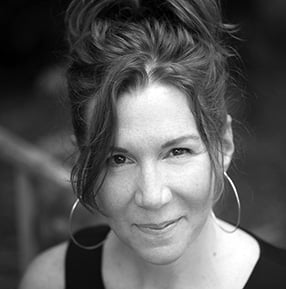for CJ Rosenquist
In the current, secretly intentional, house
there is: cope
with condition itself (cannot be
underestimated). There is
Barrier. There is encountering
Barrier. There is struggle
to negotiate Barrier, while being
watched. There is kindly-meant offer
to help (almost always
appreciated). There is kindly-meant, but
no-asking first “help”
that often involves non-consensual
touch. There is hyper-visibility of Body
and in-visibility of person-
hood (a neat paradox
conjured by inaccessibility). There
is: don’t observably feel anything,
about any piece, which equals choke
down snake of shame, muscle
grown in the jungle of un-
intentionality. There is, during all:
cheerfully, patiently, what is apparently un-
fruitfully educate, while “performing”
Disability in public.
Go ten clicks, repeat. But
when the roof, walls, windows,
when the floor, floorboards, foundation,
when the cup of land
that holds house is
love, is welcome, when the nakedly
intentional shelter
is access, for body,
disability, and/or Black, Brown,
Trans, Nonbinary,
Queer, Muslim, fat,
elder, child, carbon-based
and breathing, valued simply
for being, and never demand
for government document,
there is no Barrier,
no encounter of
it, no being watched,
only aid, consent,
no shame, never blame.
Visibility, right-sized, equals
neighbor, not snake,
repeat of this life is clean
skate on frozen lake.
Imagine, the beloved who needs
assistance vacuuming saliva
from her mouth always
has a willing hand
holding hose, back-up
heart, whose intention is
set on weatherproof
interdependence.
This is the house,
the land, the world
of access, of welcome,
of here, you belong here.
Copyright © 2020 by Tara Hardy. Originally published in Poem-a-Day on January 31, 2020, by the Academy of American Poets.
“This poem is written in the intersectional, anti-capitalist spirit of Disability Justice in which every body is valued not just for what it can produce. It is in response to negotiating a world in which I, and other People with Disabilities, encounter barriers to access every day. It is in solidarity with a friend with whom I grieve over the ways able-bodied people lock us out.”
—Tara Hardy

